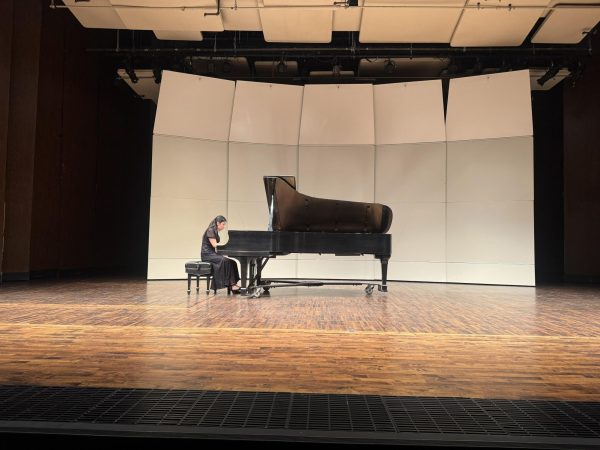Excellence in Academic Advising initiative launches on campus
Named as one of 12 institutions in the Urban Ecosystems Cohort of the Excellence in Academic Advising (EAA), Oakland University recently took another step forward in ensuring student success.
As stated on the EAA’s website, the EAA is a three-year long evidence-based initiative funded in part by the Kresge foundation. It helps institutions create and implement a comprehensive, strategic plan for academic advising. Furthermore, it strives to change the influence of academic advising in higher education and to advance student learning.
Along with four other schools from Michigan and beyond, the EAA will be partnering with the National Academic Advising Association (NACADA), which is a global community for academic advising, and the John N. Gardner Institute. This partnership is aimed to bring global and national advising expertise of the organization together to implement positive change in the student experience.
According to its official website, NACADA, with the Gardner Institute and a cohort of charter institutions, promotes and supports quality academic advising in institutions of higher education.
For its celebration of its initiative launch, the EAA held a presentation to introduce their initiative and how to get involved in the process to the campus community in the Oakland Center on Tuesday, Jan. 14.
“Students are the primary focus of academic advising, and their input and experience is important to the future success of this initiative,” Shannon Esselink, director of advising services, said.
As the initiative serves for student success, the EAA intends to focus more on students’ retention and on-time graduation.
The website of NACADA also specified that the EAA is demonstrated by evidence of student and program success through the following:
- A comprehensive and collaborate developed academic advising delivery system
- Evidence-based decision making and assessment
- Academic advising mission and goal statements that align advising with institution’s mission
To ensure these goals are successfully achieved, the EAA promotes diverse strategies such as “off-track alerts,” academic success and degree completion, advising consistency in a decentralized model and customized advising technology tools.
With these strategies, nine working committees will help achieve these goals. They will also further assess the conditions of the EAA and make recommendations for improvement and implementation, according to Esselink.
Anne Hitt, associate provost, said the first goal is to complete the self-study by mid-summer to identify the areas of excellence and find areas that need improvement. To accomplish this goal, she said they need students to provide their input.
“There will be a survey from EAA that is specifically for students to get their feedback on what does and does not work in advising,” Hitt said.
The presentation during the launch event also included information about how students and faculty can be part of the EAA and help promote its mission, as they are looking for students to join their self-study committees.
“Student participation on the Condition Committees is essential, and any students that want to participate can express their interest by visiting the EAA website and clicking ‘Let us know’ to complete the committee interest form,” Esselink said.
Through advanced academic advising systems implemented to the institution, OU students will not only benefit from diverse academic curriculums but earn opportunities to talk about their academics and careers in depth with their advisers.




